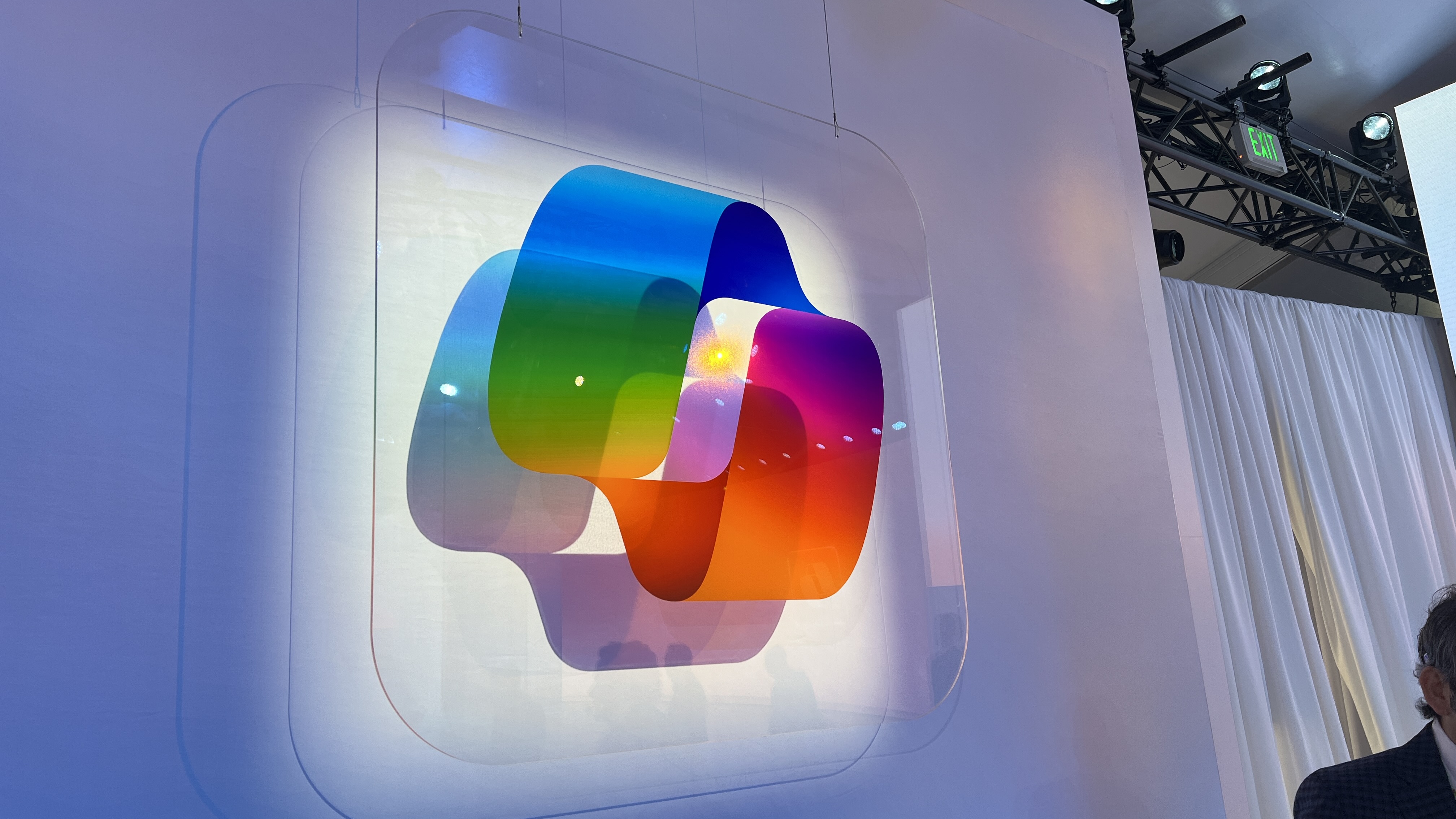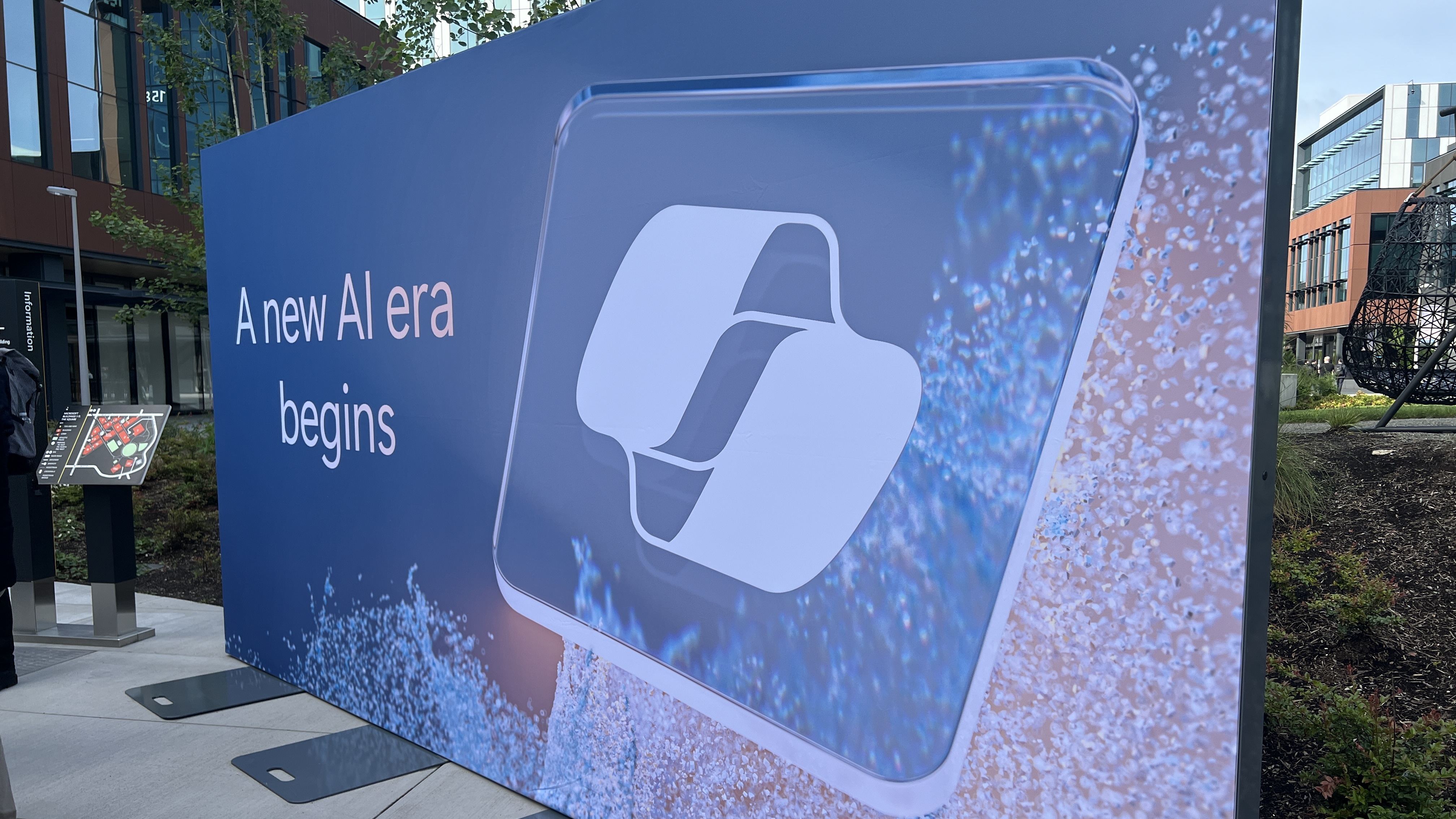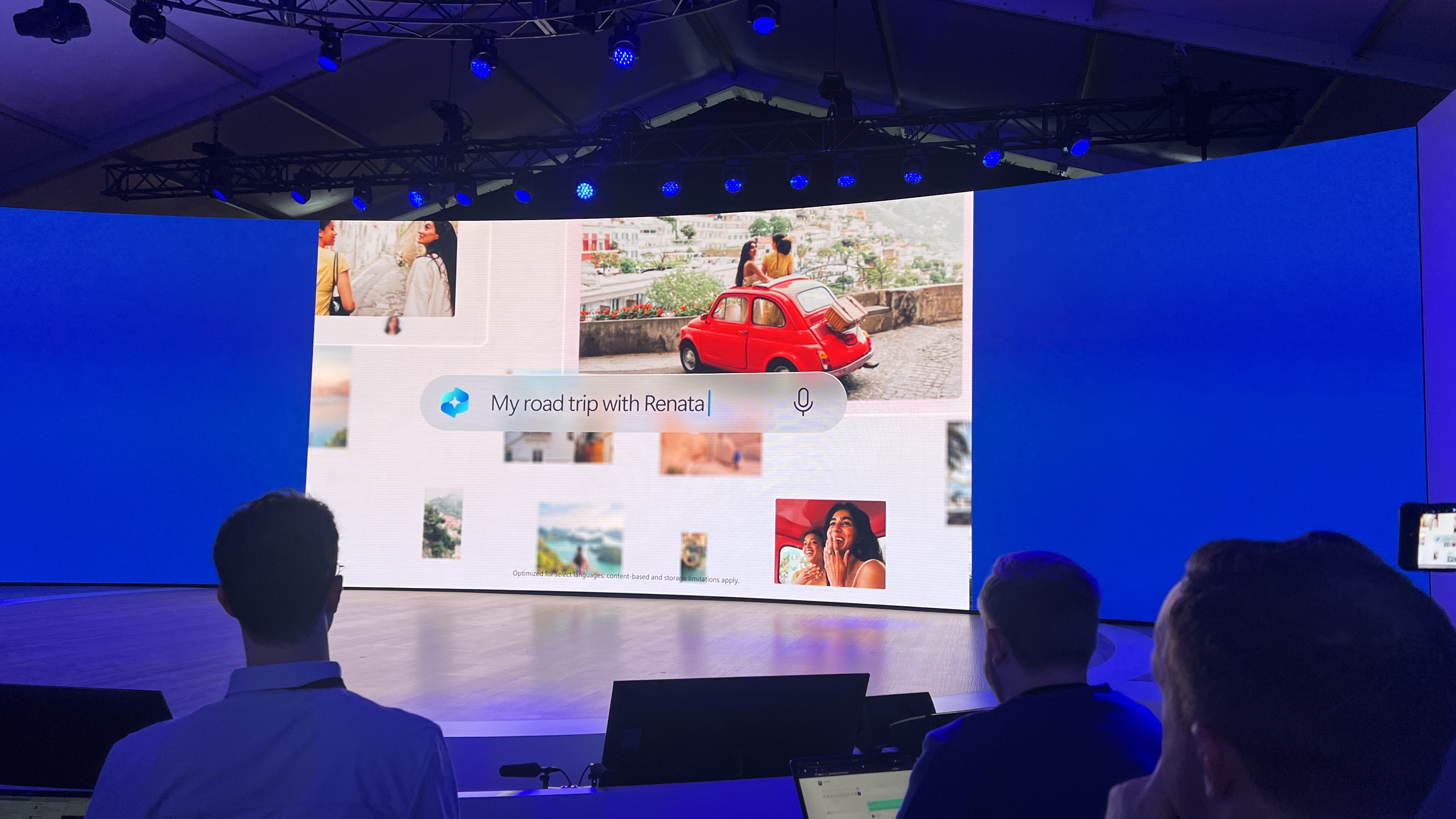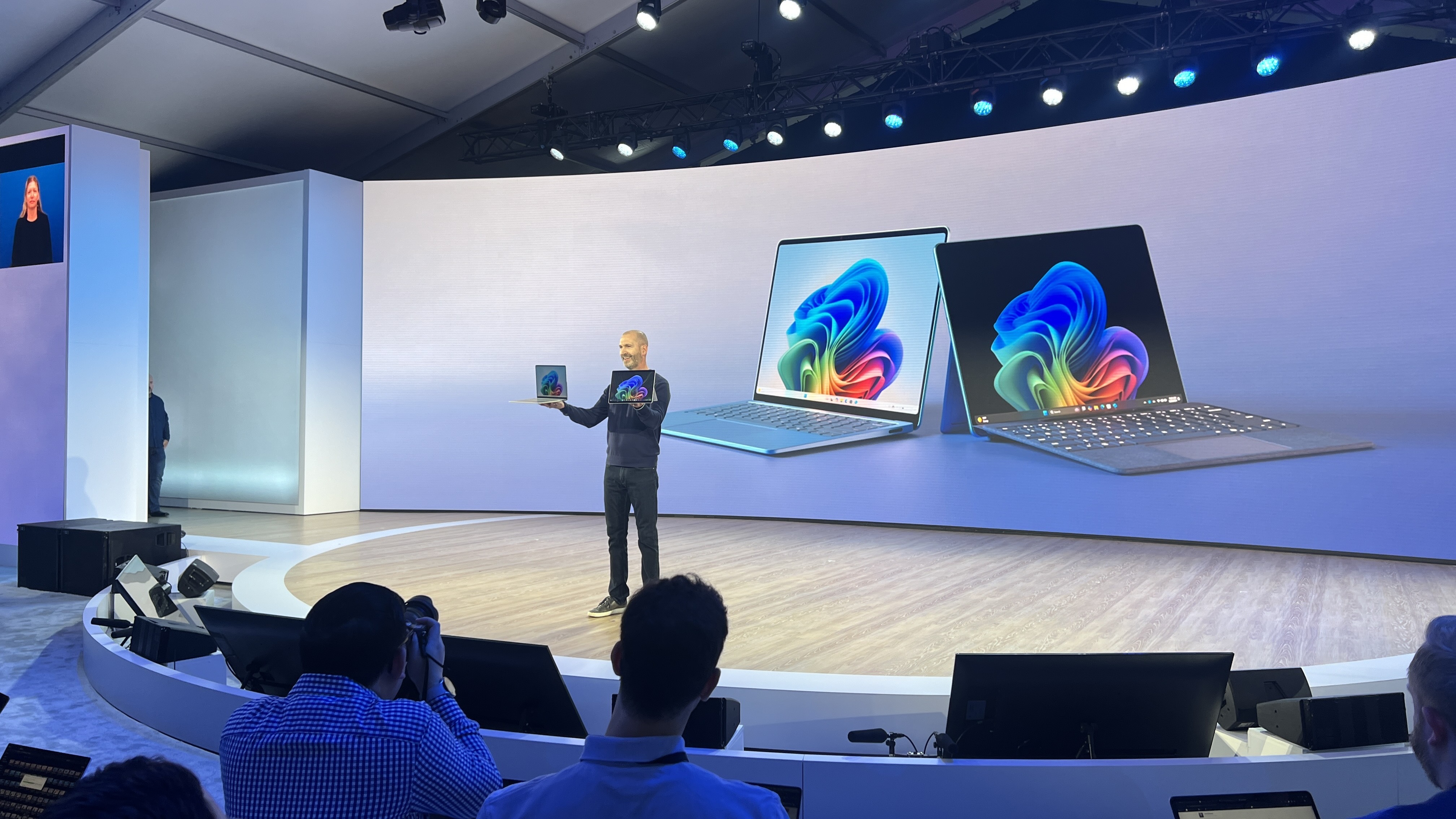
The day before the start of Microsoft's annual Build conference, the tech giant is holding a major news conference and TechRadar is on the ground in Washington to bring you the latest news as it breaks.
There's been almost no hint of what is being prepped for announcement, so I'll be hearing the news for the first time myself right along with you, and while the event will not be live-streamed, I'll make sure to keep you posted on everything that Microsoft announces as I hear it.
The big guess ahead of Build has been that Microsoft's heavy focus on AI will lean into the slew of new processors hitting the market from Intel, AMD, and Qualcomm, with the latter's Snapdragon X Elite and Snapdragon X Plus chips giving a lot of people hope that Windows on Arm could finally be getting a real shot in the, well, arm. I couldn't help that one, sorry.
But it's also likely that, since this is a developer conference, we're going to see a lot of chatter about Microsoft Copilot. This might include new tools and features, deeper ChatGPT integration, and more along those lines.
Of course, the real wildcard would be Windows 12, but I highly doubt that we're there yet, but we'll see soon enough.

Here we go, folks! This is John, live from Microsoft's Redmond campus in Washington state, where the venerable tech giant is holding a special event ahead of its annual Microsoft Build conference. We're all expecting some exciting stuff from the event, so stay tuned as I bring you everything I see and hear over the next hour.
We're underway now as Microsoft CEO Satya Nadella takes the stage. I can tell you right now, given the number of Qualcomm folks I've seen around here and how the Copilot logo is plastered all over the campus, it's not really a mystery that this event is going to be heavily weighted towards Microsoft's gargantuan AI ambitions and that Qualcomm's Snapdragon X chips are going to play a pretty big role in Microsoft's Surface device plans.
We're starting with Copilot.
Copilot + PC is the new platform Microsoft is introducing, though we don't know a whole lot yet. This is absolutely about integrating AI into the entire Windows platform, not just a tool slapped like a barnacle on the side of a non-AI operating system.
Yusuf Medhi is taking the stage to tell us about the new category of PC platform.
We're talking about a new system architecture running at 40+ trillion operations per second, 58% faster than the MacBook Air with M3, according to Mehdi.
Copilot is going to be integrated into Windows 11 Settings, Notifications, and other systems.
OpenAI's ChatGPT-4o is going to be fully integrated into Windows, letting ChatGPT-4o help you navigate Minecraft if you've never played the game, kind of like an interactive walkthrough.
As far as demos go, the ChatGPT-4o walkthrough of how to play Minecraft is pretty impressive. As a lifelong gamer, its the kind of use case that makes sense for real people.
We're onto Recall now, which promises to leverage your use history with on-device AI to allow you to pull data you didn't even know you forgot had been processed on your PC. Carolina Hernandez, the product lead for Recall, is describing how to use the Recall function to search for webpages you once visited using natural language, such as the blue dress that you were looking at as a present for a family member.
We're onto privacy and safety. Recall data will only be used on device, with control over what data is retained on your device, and it will never be used to train Microsoft's AI models.

Windows Recall also incorporates Timeline, which lets you scroll through your device history to find what you're looking for.
The idea of having a 'history' for your PC, much like a web browser, that lets you backtrack through offline work is genuinely innovative. If it's on device and secure, I'm absolutely on board with this kind of AI.
We're now onto Windows Copilot Runtime, an OS-level framework that will allow developers to better utilize the power of an NPU for their apps.
OK, we're now talking about the partnerships between Microsoft, Intel, AMD, and Qualcomm. The video is featuring Gelsinger, Su, and Amon, like an Avengers superteam. I guess Apple is Thanos in this case?
We're now onto native Arm apps, including Microsoft 365 apps completely rebuilt from the ground up for ARM.
OK, Prism emulation for Windows on Arm, effectively bridging the x86/x64/Arm gap.

New Microsoft Surface Laptop and Surface Pro with Copilot and Snapdragon X chips. Up to 22 hours of on device video playback, 15 hours of web browsing battery life.
Adobe Creative Suite will now run native on Copilot + PC devices, which require 16GB of RAM, 256GB SSD storage, and an integrated NPU.
In a live demonstration of Adobe Photoshop running on the new Surface Laptop, it processed multiple images about twice as fast on the Surface Laptop as it was on the Apple MacBook Air with M3.
OK, so Live Captions will use the NPU to provide live translations of any audio as it plays, with a video demo showing a global team on a Teams call all speaking different languages, but the captions stayed consistent across three different languages, with 40 languages supported to start.
The new Surface Pro is up to 90% faster than the Surface Pro 9.
The Surface Pro features a QHD front facing camera, with a rear camera that can capture 4K video.
The keyboard and touchpad will feature more accessibility-friendly touchpad and keys, again, showing Microsoft's leadership on accessibility tech across their product lines.
We're now onto generative AI. Cocreator, a text-to-image tool, will take text and brushstroke input collaboratively. It can also let you iterate on your own sketching, which is going to be a powerful tool for artists who are brainstorming designs.
In CapCut, the NPU in the Surface Pro entirely handled the work of removing the background from a minute and a half video clip and replaced it with a new one in very little time at all.
I've been messing around with NPUs for several weeks now, and they've honestly kind of sucked. I think the most important development here might be Copilot Runtime. This might be the key that unlocks these nueral processors to actually create useful AI apps for everyday use.
All the major manufacturers are getting in on all this, with their major lines.
These new devices will be available for preorder today with deliveries starting June 18, with starting prices from $999.99.
OK, so that is a wrap on the press briefing, but there is a lot to dig into and digest, which will take a couple of minutes, but the bottom line is that Qualcomm's Snapdragon X chips, especially the Snapdragon X Elite, are going to be a massive challenge to Apple's MacBook Air.
There is still the question of compatibility on Arm architecture, but if Prism emulation can match what Rosetta was able to do for Apple Silicon, then that might not really matter much, and given how much all the major players have come together to produce these Snapdragon X Elite laptops, software developers have no choice but to build native Arm apps.
Incredibly, seemingly against the odds, Microsoft might actually deliver on the promise of Windows on Arm.
The pressure is now going to be on Intel and AMD to live up to the battery life promise of these new Arm chips. 22 hours of local video playback on an Intel or AMD chip is laughable right now, and for laptops, this will give Qualcomm a significant advantage if these chips can at least come within striking distance of Intel and AMD's performance and compatibility.
As for all of the Copilot AI demos I saw, there's only so much I can say without testing any of these myself independently. That said, if these new Copilot + PC devices live up to what I've seen in the live demos, then customers (especially everyday people, not necessarily just tech enthusiasts) will have a real reason to upgrade their laptops to those with an integrated NPU.
All of this, I think, is a function of Copilot Runtime. Programmers who actually make the apps that will leverage an NPU will need base-level system access to the NPU hardware, and just as DirectX powered a revolution in PC game development by giving game developers an easy way to harness the hardware in a computer to generate increasingly realistic graphics, Copilot Runtime might do something very similar for all these new NPUs.
I'm going to have much more to say about all of this over the next few days, but I now have to go run out to check out some live hands-on demos (and maybe a sandwich as well).
As always, friends, be kind to each other.




.png?w=600)


